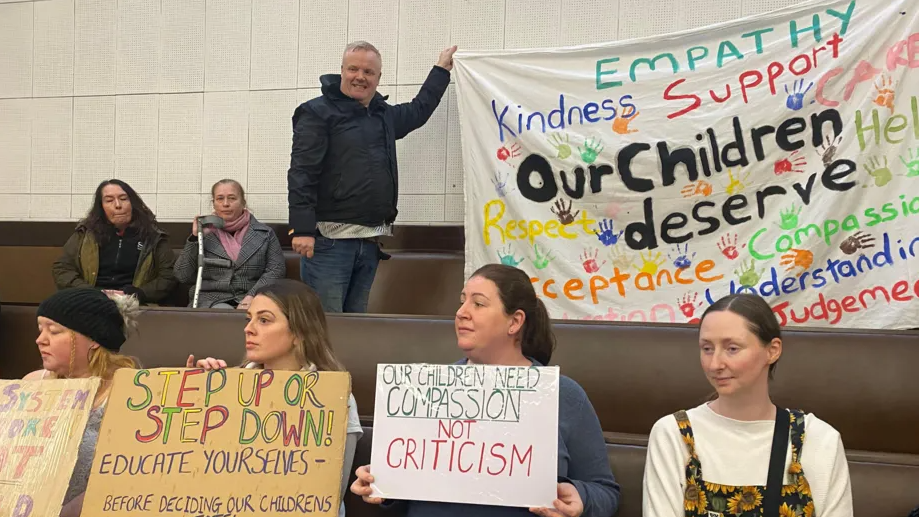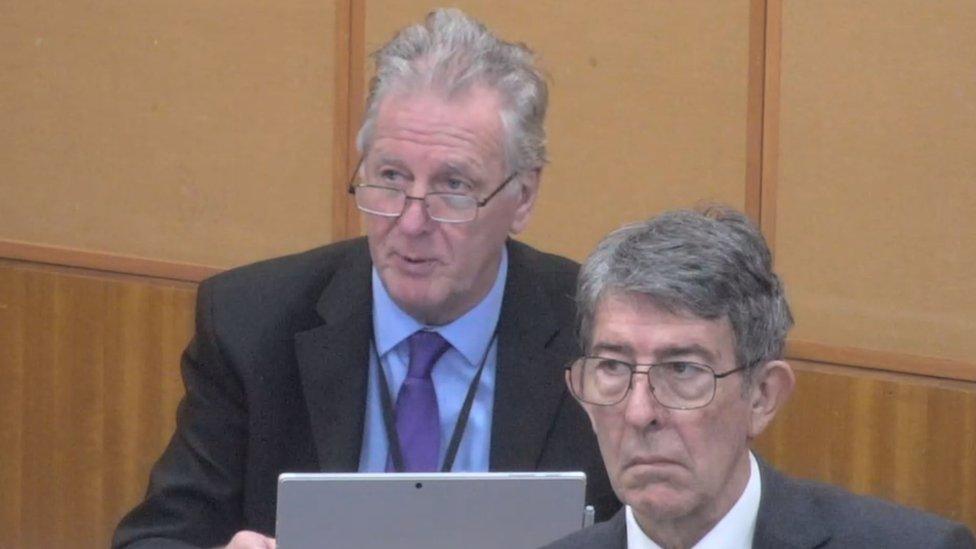Special education cost-cuts plan backed by council

Warwickshire County Council said its efforts were "focused on alleviating the projected overspend and not savings"
- Published
Plans to reduce costs within special educational needs and disabilities (SEND) in Warwickshire have been approved by councillors.
SEND spending is forecasted to reach £267m by 2028, but by progressing with four new measures in conjunction with a government plan, it could be reduced by up to £115m, the council said.
Warwickshire is one of 55 education authorities taking part in the Delivering Better Value programme as SEND spending is vastly outstripping the government funding allocated for it.
In March, a councillor stood down from the council after he and two others were accused of making offensive comments about children with special needs during a meeting about SEND provision.

Protesters gathered at a council meeting earlier this year, angered by the comments the councillors made discussing the rising cost of council support for children
The council has now said the current costs situation was "unsustainable" and the government programme would help to mitigate the forecasted overspend.
The introduction of the four new measures were approved at a council cabinet meeting last week.
Cabinet members heard how increases in the number of Education Health and Care Plans (EHCPs) – frameworks for those with needs that cannot be met by mainstream education - were behind the rising costs.
'Hugely concerned'
A lot of overspending was down to inadequate provision to meet needs locally, meaning the county not only pays private providers that may be based miles away, even outside Warwickshire, but also to get the children to and from school.
Council leader Izzi Seccombe, said it was largely down to "parent choice".
“They may be Warwickshire children and it may be us who foot the bill for these, but this is one of the reasons that we are hugely concerned about the budget in this area," she said.
After a child gets an EHCP, a parent or carer may ask that the offer be referred to an independent inspector who makes a judicial decision, one way or the other, which the council did not have "a great deal of say over".
The four approved measures, external include, establishing more specialist provision within mainstream schools, “more effective” SEND support prior to children reaching the EHCP stage.
The EHCP is a development programme to “maintain support and confidence for supporting children" with plans in mainstream schools and improving digital systems to make the process run more smoothly.
'Not parents' fault'
But parent and campaigner Elissa Novak, from Warwickshire, said the savings plan was “risky”, as many children were already unable to get the support they needed.
She left her job last year to teacher her four-year-old son at home, because he was not getting the full support he needed because of cuts from a mainstream nursery.
She has “huge empathy” for authorities due to low funding from government, but “an overspend does not mean spending more than is needed – it means spending more than they get from the government” and it was not the fault of parents or children or down to “parental choice”.
The council said it has "consistently" increased SEND spending year after year, rising from £78.5m in 2021-22 for higher needs, to £90.8m in 2022-2023.
The government programme would lead to improved outcomes for children and keep them connected to their families and communities, while it remained confident in making the best use of its finances, it added.
This news was gathered by the Local Democracy Reporting Service which covers councils and other public service organisations.
Follow BBC West Midlands on Facebook, external, X, external and Instagram, external. Send your story ideas to: newsonline.westmidlands@bbc.co.uk, external
Related topics
- Published10 February 2024

- Published6 February 2024
